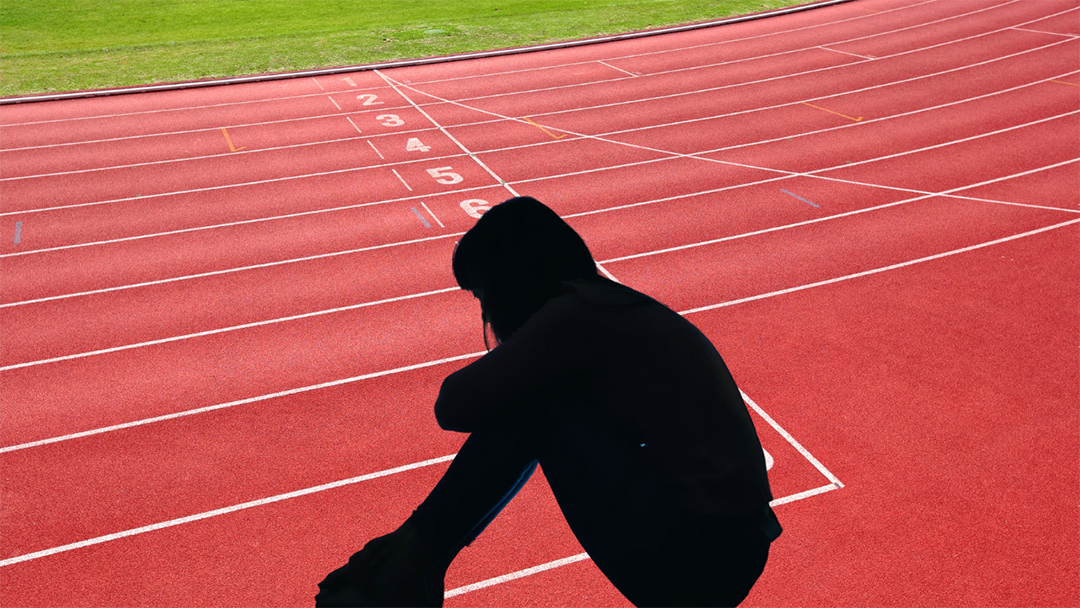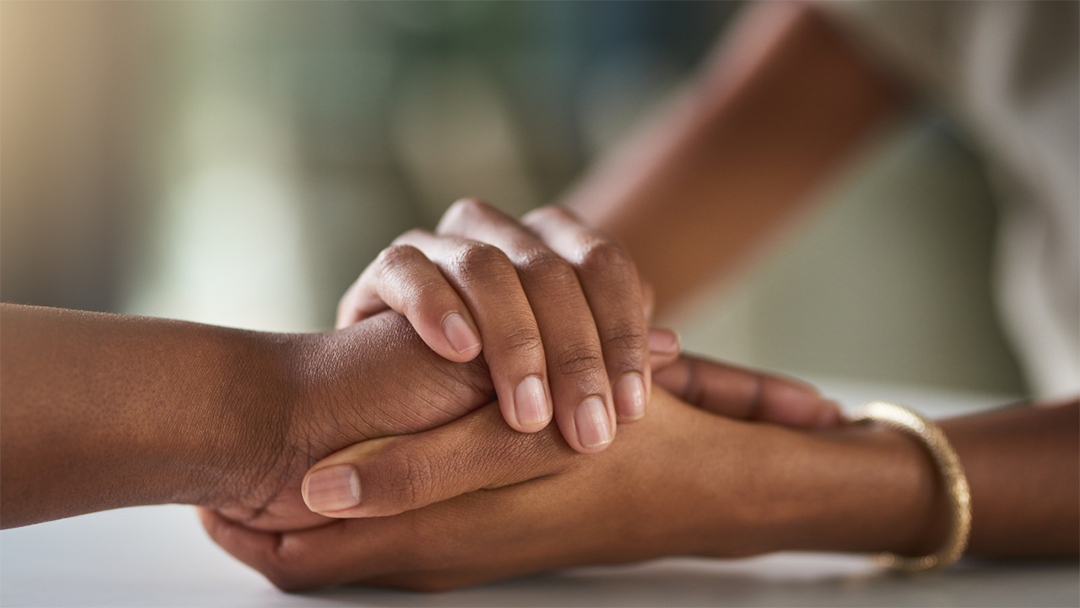The Olympic Games Are More Mental Than Physical
ADVERTISEMENT

Welcome, Kapamilya! We use cookies to improve your browsing experience. Continuing to use this site means you agree to our use of cookies. Tell me more!
The Olympic Games Are More Mental Than Physical
Danah Gutierrez
Published Jul 31, 2024 05:55 PM PHT
|
Updated Aug 01, 2024 07:22 PM PHT
Olympians are some of our modern-day gods, with chiseled bodies, superhuman endurance and strength, and out-of-this-world determination. We often see them in awe-inspiring motion competing and training, but there's so much more behind the scenes. The reality is, they face intense mental health challenges given the pressure to perform, the sacrifices they make, and the constant scrutiny from the public and media.
Olympians are some of our modern-day gods, with chiseled bodies, superhuman endurance and strength, and out-of-this-world determination. We often see them in awe-inspiring motion competing and training, but there's so much more behind the scenes. The reality is, they face intense mental health challenges given the pressure to perform, the sacrifices they make, and the constant scrutiny from the public and media.
 Olympians face many challenges, but the biggest one may be their mental health
Olympians face many challenges, but the biggest one may be their mental health
 Olympians face many challenges, but the biggest one may be their mental health
Olympians face many challenges, but the biggest one may be their mental healthOlympic athletes spend years—their entire lives even—training to compete on the world’s biggest stage. This intense focus can take a toll on their minds given the weight of the game. Michael Phelps, the most decorated Olympian ever, has been candid about his mental health struggles. 'I thought of myself as just a swimmer, not a human being,' Phelps said in an interview. 'We’re supposed to be this big, macho, physically strong human beings, but that’s not how it is.' There’s also tennis player, Naomi Osaka, who withdrew from the French Open in 2021, as she struggled with anxiety and depression.
Olympic athletes spend years—their entire lives even—training to compete on the world’s biggest stage. This intense focus can take a toll on their minds given the weight of the game. Michael Phelps, the most decorated Olympian ever, has been candid about his mental health struggles. 'I thought of myself as just a swimmer, not a human being,' Phelps said in an interview. 'We’re supposed to be this big, macho, physically strong human beings, but that’s not how it is.' There’s also tennis player, Naomi Osaka, who withdrew from the French Open in 2021, as she struggled with anxiety and depression.
Chasing their Olympic dreams means making huge life adjustments, too, like spending long periods away from family and friends. The isolation can lead to feelings of overwhelming loneliness. Gymnastics superstar Simone Biles has spoken about the emotional toll this brings forth. 'It’s really stressful when you miss out on normal life events because you’re training all the time. Sometimes it feels like you’re in a bubble, disconnected from the real world,' Biles shared.
Chasing their Olympic dreams means making huge life adjustments, too, like spending long periods away from family and friends. The isolation can lead to feelings of overwhelming loneliness. Gymnastics superstar Simone Biles has spoken about the emotional toll this brings forth. 'It’s really stressful when you miss out on normal life events because you’re training all the time. Sometimes it feels like you’re in a bubble, disconnected from the real world,' Biles shared.
Related Story: Sports Injury Prevention and Recovery 101
Throw in the social media factor where the general masses have access to these Olympians, and it can be another added tension into their already high-pressure lives. Negative comments and constant scrutiny can severely impact their self-esteem and mental health. Chloe Kim, an Olympic gold medalist in snowboarding, opened up, 'The negativity was really hard to handle. I felt like I had to be perfect all the time, which is impossible.'
Throw in the social media factor where the general masses have access to these Olympians, and it can be another added tension into their already high-pressure lives. Negative comments and constant scrutiny can severely impact their self-esteem and mental health. Chloe Kim, an Olympic gold medalist in snowboarding, opened up, 'The negativity was really hard to handle. I felt like I had to be perfect all the time, which is impossible.'
ADVERTISEMENT
On the upside, Olympic athletes being able to discuss their struggles openly has paved the way for dialogue and better coping techniques when it comes to their mental health challenges. Here are some of the strategies that help them overcome.
On the upside, Olympic athletes being able to discuss their struggles openly has paved the way for dialogue and better coping techniques when it comes to their mental health challenges. Here are some of the strategies that help them overcome.
1. Seeking Professional Help
Many athletes now work with sports psychologists and therapists to prioritize their mental health. These professionals help them develop coping mechanisms and provide a safe space to talk about their struggles. Phelps, who has been vocal about his therapy journey, said, 'Therapy saved my life. It helped me understand that it’s okay not to be okay.'
Many athletes now work with sports psychologists and therapists to prioritize their mental health. These professionals help them develop coping mechanisms and provide a safe space to talk about their struggles. Phelps, who has been vocal about his therapy journey, said, 'Therapy saved my life. It helped me understand that it’s okay not to be okay.'
2. Mindfulness and Meditation
Mindfulness practices like meditation and deep breathing exercises are popular among athletes for managing stress and anxiety. Olympic diver Tom Daley has made meditation a key part of his routine. 'Meditation helps me stay grounded and focused. It’s a way to clear my mind and reset,' Daley explained.
Mindfulness practices like meditation and deep breathing exercises are popular among athletes for managing stress and anxiety. Olympic diver Tom Daley has made meditation a key part of his routine. 'Meditation helps me stay grounded and focused. It’s a way to clear my mind and reset,' Daley explained.
3. Building a Support Network
A strong support system is crucial for athletes. This includes family, friends, coaches, and teammates who provide emotional support and encouragement. Aly Raisman, a two-time Olympic gymnast, emphasized the importance of her support network. 'I felt very depressed, and I was going through a lot of stuff that I didn't really feel like anyone understood. [...] My family and friends were there for me during my toughest times. Their support was everything,' Raisman said.
A strong support system is crucial for athletes. This includes family, friends, coaches, and teammates who provide emotional support and encouragement. Aly Raisman, a two-time Olympic gymnast, emphasized the importance of her support network. 'I felt very depressed, and I was going through a lot of stuff that I didn't really feel like anyone understood. [...] My family and friends were there for me during my toughest times. Their support was everything,' Raisman said.
 Coping strategies can help athletes win their mental battles for a holistic approach in life
Coping strategies can help athletes win their mental battles for a holistic approach in life
 Coping strategies can help athletes win their mental battles for a holistic approach in life
Coping strategies can help athletes win their mental battles for a holistic approach in life4. Balancing Life Outside of Sports
Athletes are recognizing the importance of having interests and activities outside of their sport. This helps them maintain a sense of identity beyond being an athlete. Biles, for instance, has spoken about her passion for mental health advocacy and her interest in fashion. 'Having other passions gives me something to look forward to outside of gymnastics. It helps me stay balanced,' Biles shared.
Athletes are recognizing the importance of having interests and activities outside of their sport. This helps them maintain a sense of identity beyond being an athlete. Biles, for instance, has spoken about her passion for mental health advocacy and her interest in fashion. 'Having other passions gives me something to look forward to outside of gymnastics. It helps me stay balanced,' Biles shared.
ADVERTISEMENT
5. Open Conversations About Mental Health
Creating an environment where mental health is openly discussed and normalized is essential. Coaches play a pivotal role in this by fostering a supportive and understanding atmosphere. Olympic coach and former athlete John Orozco emphasized, 'We need to break the stigma around mental health in sports. Athletes should feel comfortable talking about their struggles without fear of judgment.'
Creating an environment where mental health is openly discussed and normalized is essential. Coaches play a pivotal role in this by fostering a supportive and understanding atmosphere. Olympic coach and former athlete John Orozco emphasized, 'We need to break the stigma around mental health in sports. Athletes should feel comfortable talking about their struggles without fear of judgment.'
***
***
The mental health challenges faced by Olympic athletes are significant, but they are not insurmountable. As the conversations around mental health in sports continue to evolve, it is crucial to remember that behind every medal and record-breaking performance is someone striving for balance and well-being. They may be godlike, but they’re still human, after all.
The mental health challenges faced by Olympic athletes are significant, but they are not insurmountable. As the conversations around mental health in sports continue to evolve, it is crucial to remember that behind every medal and record-breaking performance is someone striving for balance and well-being. They may be godlike, but they’re still human, after all.
Related Story: Actor of the Moment Glen Powell's Fitness Routine—Revealed!
Read More:
wellness
olympics
olympics 2024
paris olympics 2024
olympic athletes mental health
athletes mental health
ADVERTISEMENT
ADVERTISEMENT


